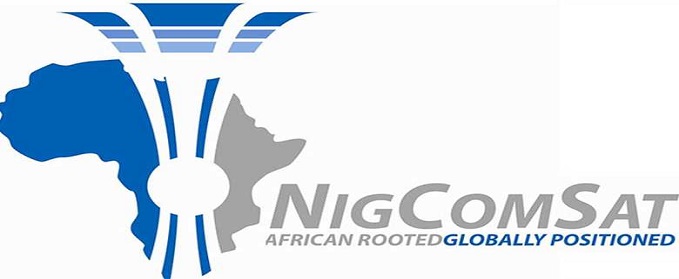Telecom
NigComSat Dangles Africa’s First Satellite Navigation Services

NigComSat has struck a collaboration with ASECNA and Thales Alenia Space to provide the first Satellite-Based Augmentation System (SBAS) signal over Africa & Indian Ocean (AFI).
The service, which will go into full operation in 2024, opens a new era of satellite navigation performance augmentation in the Africa & Indian Ocean region
ASECNA, the Agency for Air Navigation Safety in Africa and Madagascar, has started to broadcast the SBAS.
It is the first SBAS open service in this part of the world.
NigComSat-1R Satellite managed and operated by Nigerian Communications Satellite Ltd under Federal Ministry of Communications and Digital Economy of Nigeria, is central to the whole arrangement.
NigComSat-1R with a lifespan of 15 years, was launched into the orbit on December 19, 2011.
This early open service is provided as part of the “SBAS for Africa & Indian Ocean” programme which pursues the autonomous provision over the continent of SBAS services, to augment the performances of the satellite navigation constellations GPS and Galileo.
With improved accuracy to within a meter, and boosted integrity, availability and continuity of safety-related applications, these SBAS services will improve flight safety and efficiency in Africa.
It is also expected to benefit the economy in many areas as land, sea and rail transport, as well as mass market applications, supporting user safety, cost-effectiveness and sustainable development.
The launched open service essentially aims to carry-out technical trials, and to undertake with partner airlines field demonstrations for aircraft and rotorcraft, to demonstrate the benefits of the future operational safety-of-life SBAS services, expected from 2024.
It will also include early Precise Point Positioning (PPP) and emergency warning service to populations, which performance will be proven through other demonstrations.
The signal-in-space is generated by a dedicated system testbed, developed as part of the “SBAS for Africa and Indian Ocean” preliminary design phase, financed by the European Union and awarded to Thales Alenia Space, Joint Venture between Thales (67%) and Leonardo (33%). The “SBAS for Africa and Indian Ocean” is based on the European EGNOS developed by the European Space Agency (ESA) acting under delegation of the European Commission and operated by the European GNSS Agency GSA.
The system prototype uses as reference stations network the SAGAIE network deployed by CNES and ASECNA with the support of Thales Alenia Space.
The signal is broadcasted via the SBAS payload on NigComSat 1R GEO sate
Telecom
Paradigm Initiative Warns of AI-Driven Hate Speech, Urges Global Tech Reform

As the world commemorates the International Day for Countering Hate Speech, Paradigm Initiative (PIN) is calling on big tech companies to intensify their efforts in combating online hate speech and ensuring respect for fundamental human rights.

PIN’s 2024 Londa report highlights the widespread prevalence of hate speech online. In Angola, for instance, at least 25 content removal requests were made in connection with hate speech, harassment, and political misinformation. Globally, the consequences of unchecked hate speech have been severe—ranging from incitement to violence and heightened ethnic tensions to the targeting of vulnerable communities, including minorities, women, and foreigners.
Nigeria witnessed a tragic example in 2018 when a Facebook post showing a massacre in Plateau State was viewed more than 11,000 times, triggering ethnic conflict and resulting in fatalities. In South Africa, inadequate content moderation has worsened the problem, while in Ethiopia in 2021, a false Facebook post led to the killing of a man wrongly implicated in a scandal. India saw a surge in hate speech during its elections.
PIN notes that actors behind hate speech are becoming increasingly sophisticated, often leveraging technologies like artificial intelligence to boost visibility. Meanwhile, existing moderation systems—especially for non-English content—struggle to keep up.
Bridgette Ndlovu, PIN’s Partnerships and Engagements Officer, said, “Hate speech online is a direct attack on the dignity and safety of individuals.” She urged technology companies to adopt transparent and effective moderation strategies and to prioritize human rights in their operations.
The spread of hate speech raises complex challenges for lawmakers. Governments are trying to regulate harmful content such as misinformation and harassment while protecting freedom of speech. However, PIN warns that hate speech laws should not be misused to arbitrarily detain human rights defenders or stifle dissenting voices.
To address these concerns, PIN recommends that tech companies invest more in moderating non-English content to reflect local nuances, improve transparency around government takedown requests, promote digital literacy—particularly in underserved regions—and conduct regular human rights due diligence, aligned with the United Nations Guiding Principles on Business and Human Rights.
Telecom
Moniepoint Deepens Commitment to Africa’s Future Through Education and Innovation

Moniepoint Inc, one of Africa’s leading financial institutions partnered with the Mega Impact Foundation to support the 5th edition of the NextGen Connect Interschool Oratory Competition in Asaba, Delta state. This collaboration showcases Moniepoint’s unwavering commitment to youth empowerment and human capital development across the African continent.

The competition, which was held commemoratively to celebrate this year’s International Day of the Boy Child, brought together SS2 students from across Delta State to address the critical theme: “The Role of Financial Inclusion and Technology in Shaping a Brighter Future for Young People in Africa.” Moniepont has received critical acclaim over its core mission of advancing financial inclusion through innovative digital financial technology solutions and payment services..
The oratory competition showcased exceptional talent among Nigeria’s youth, with Otovo Praise of Crystalloid International School emerging as the champion. His outstanding performance earned him a full-year scholarship through the Tosin Eniolorunda STEM Foundation, reflecting Moniepoint’s philosophy of investing in educational excellence. Second-place winner Audi Innocent of St Patrick’s College received ₦300,000, while third-place winner, Asher David of Glorious Kids Academy was awarded ₦200,000.
“At Moniepoint, we believe that driving sustainable innovation begins with future-proofing and expanding the talent pool by empowering the next generation with the tools that they need to succeed especially basic literacy skills which remain fundamental pillars in socio-economic development,” said Tosin Eniolorunda, CEO Moniepoint Inc. “These young voices represent the future of African leadership, and their insights into financial inclusion and technology demonstrate the remarkable potential that exists within our communities. Through our various educational and developmental initiatives such as the CAD/CAM lab we donated to OAU last year or the Moniepoint DreamDevs programme, we are betting big on an investment in Africa’s future.”
The initiative extends beyond monetary rewards, creating meaningful platforms for young people to express their ideas on a global stage. Through its support of the NextGen Connect Conference and Tech-In-School conversations, Moniepoint is fostering an environment where youth can develop critical thinking skills, build confidence, and engage with pressing societal issues.
In her remarks, Founder, Mega Impact Foundation, Florence Ogonegbu said that “we reaffirm our commitment to building an Africa where every young person has simplified access to sustainable education, capacity building, and empowerment. By leveraging technology and local initiatives, we are creating platforms that enable our youth to thrive and transform their communities.
“Together with partners like Moniepoint, we are not just shaping futures—we are driving a movement for social development that will resonate globally. Every boy, every young person, deserves the opportunity to unlock their full potential and drive lasting impact across our continent.”
The competition received additional support from the Ministry of Women Affairs and Social Development, Delta State, highlighting the collaborative approach required to nurture young talent effectively.
Telecom
Zoho Unveils Zia Hubs to Harness AI Insights from Unstructured Business Data

Zoho, a global technology company, today launched Zia Hubs, a solution within Zoho WorkDrive that brings new forms of unstructured business data into the company’s broad portfolio of applications and AI services. Using Zia Hubs, organisations can now present any type of business content to Zoho’s powerful capabilities and services—including agentic AI, comprehensive analysis, and accurate, unified search—regardless of file format or structure.

“According to IDC, 80 percent of business data is unstructured,” said Kehinde Ogundare, Country Head, Zoho Nigeria. “Most unstructured data is text-based, meaning pertinent information lives within email conversations, social media posts, word processor documents, or audio and video transcripts. With Zia Hubs built into the full product suite, Zoho can provide customers with a deeper integration than any comparable software platform and nearly limitless potential uses for their data.”
Deeper Intelligence Accessing More Customer Data
Launching as part of Zoho WorkDrive, Zia Hubs brings content intelligence to the company’s unified content management and collaboration platform. Designed with a high level of user control over what content AI is allowed to access, Zia Hubs enables users to organise project or task-specific content into dedicated hubs within WorkDrive. Each hub serves as a focused space where Zia, Zoho’s flagship AI, can understand and act on the content stored within. This includes a wide range of formats such as PDFs, documents, videos, and audio files.
Zia Hubs automatically organises uploaded content by grouping related information—such as section headings, supporting text, and visuals—to preserve context. For video and audio files, Zia generates transcripts and links key moments to relevant topics, making it easier to pinpoint exactly where something was said.
With Zia Hubs, users can surface the most relevant answers when asked a question, even across different content formats. Each response includes clear citations that link back to the original content, whether it is a document, spreadsheet, image, or a specific moment in an audio or video file.
Organisations can also create custom workflows with Zoho Flow, automating document storage processes for particular projects or specific teams. This ensures that Zia always has access to the latest necessary documents automatically.
Furthermore, content from third-party software—such as Docusign PDFs, RingCentral call logs, Zoom video files—are all readable by Zia, and can be automatically placed into a hub by building a workflow with Zoho Flow.
From Intelligent Content to Intelligent Action with Zia
Zia Hubs is a foundational element of Zoho’s long-term AI strategy. It lays the groundwork for a future where intelligent agents can act contextually on content across the company’s entire product suite. With full ownership of its technology stack spanning more than 55 products, Zoho is uniquely positioned to help organisations unlock deeper value from their business content compared to competitors.
Potential use cases for Zia Hubs include: a legal team’s content hub hosting a case’s relevant files: court files, correspondence, and research, allowing a lawyer to have Zia provide summaries with citations without having to manually scan lengthy files to gain insights; a company’s support center placing call logs into a hub, then querying Zia to identify trends, like, “Have we received an increase in calls regarding specific issues?”
Future updates to Zia Hubs will enable it to identify structured information within unstructured files and trigger specialised agents tailored to specific business needs. This will further establish Zia Hubs as the central content intelligence layer that activates AI-native workflows across the full Zoho ecosystem.

 Telecom2 days ago
Telecom2 days agoGSMA, Mobile Industry Call for Strengthened Action to Advance Child Online Protection in Africa

 Telecom1 day ago
Telecom1 day agoALTON Clarifies on Migration to End-User Billing for USSD Services

 News2 days ago
News2 days agoDigital Africa Global Consult, NDPC Partner on Ground-Breaking “Nigeria Data Challenge” Initiative

 General News2 days ago
General News2 days agoTD Africa, HP Strengthen Partnership to Advance Africa’s Tech Ecosystem

 News1 day ago
News1 day agoDStv Rewards Loyal Customers with Free Package Upgrades

 General News1 day ago
General News1 day agoAfrican Parliamentarians Seek Answers from Telcos on Quality of Service

 Telecom1 day ago
Telecom1 day agoLagos Future Conference 2025: Stakeholders Call for Digital Responsibility and Grassroots Innovation

 E-Financial1 day ago
E-Financial1 day agoNigerian Stock Market Suffers ₦183 Billion Loss Amid Profit-Taking






















